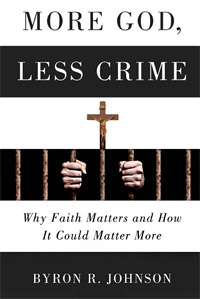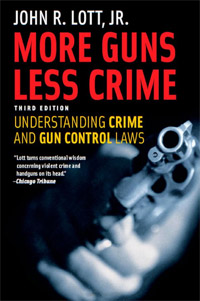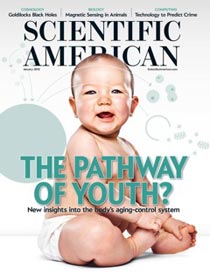This interview with Michael Shermer appeared in the magazine ÉPOCA in January 2012. The following is in Portuguese. There is also an English translation. Interview conducted by Peter Moon.
O psicólogo e escritor americano diz que é mais fácil acreditar em esquisitices — como mediunidade, horóscopo e discos voadores – que pensar e questionar
A DIFERENÇA ENTRE UM MÁGICO E UM MÉDIUM É QUE O MÁGICO CONFESSA FAZER TRUQUES, enquanto o paranormal afirma ter poderes que o habilitam a ler pensamentos, prever o futuro ou falar com os mortos. “basta ao médium dizer que tem poderes para as pessoas crerem. Faz parte da natureza humana”, afirma o psicólogo e escritor americano Michael Shermer, de 57 anos, diretor da Sociedade Cética e da revista Skeptic. “Não evoluímos para duvidar ou ter visão crítica. Isso exige educação e reflexão. Crer é mais fácil.” Nesta entrevista, ele fala sobre os temas de seu livro Por que as pessoas acreditam em coisas estranhas (JSN, 384 páginas, R$ 65, publicado agora no Brasil), e ataca a farsa por trás da crença em discos voadores, bruxas, quiromancia e mediunidade.
(continue reading…)
read or write comments (1)

During the last week of 2011, I spoke at and attended a wonderful salon in Santa Fe, New Mexico organized and hosted by Sandy Blakeslee, the brilliant science writer for the New York Times and the author of numerous engaging popular books on neuroscience. Two of the speakers at the salon addressed the topic of the decline of crime, one (Byron Johnson) attributing it to god and the other (John Lott) to guns. Of the two, Lott by far took the day with superior data and better arguments, although for a much wider and deeper analysis of the decline of violence in general I highly recommend Steven Pinker’s The Better Angels of Our Nature: Why Violence Has Declined (Viking, 2011), which I recently reviewed in these pages.

Byron Johnson is a professor at Baylor University and the founding director of the Baylor Institute for Studies of Religion as well as director of the Program on Prosocial Behavior. Acknowledging that he took the title of his book, More God, Less Crime: Why Faith Matters and How It Could Matter More (Templeton Press, 2011) directly from Lott’s book, More Guns, Less Crime: Understanding Crime and Gun Control Laws (University of Chicago Press, 2010), Johnson mostly recounted his experiences working with prisoners in an attempt to lower recidivism rates by increasing religiosity…of the Christian variety, of course. What few data slides he presented harmed his case more than helped it by being either impossible to read (dark, small type) or countering his claim (one slide showed no difference in post-conversion crime rates). Even his anecdotes seemed to gainsay his thesis, as in recounting the story of one man who even after converting to Christianity refused to confess his crime of rape and murder of a young girl until he met her mother on the day of his execution, at which point he broke down and apologized to her. Additional anecdotes and frank admissions by Johnson only worsened his case, such as that many prisoners only convert in order to impress parole boards, and that many of his fellow Christians (he called them “high octane” evangelicals) were only in the game to tally up conversion scores in an environment ripe for the picking. (I routinely receive letters from prisoners who bemoan the constant evangelizing, not only by Christians but by Muslims as well who also see prisons as conversion opportunities. As the Russian comedian Yavak Smirnoff used to joke about performing in the USSR, mixing “captured” for “captive” audiences: “they’re not going anywhere!”) (continue reading…)
Comments Off on More God, Less Crime or More Guns, Less Crime?
Why the singularity is not near,
but hope springs eternal
Watson is the IBM computer built by David Ferrucci and his team of 25 research scientists tasked with designing an artificial intelligence (AI) system that can rival human champions at the game of Jeopardy. After beating the greatest Jeopardy champions, Ken Jennings and Brad Rutter, in February 2011, the computer is now being employed in more practical tasks such as answering diagnostic medical questions.
I have a question: Does Watson know that it won Jeopardy? Did it think, “Oh, yeah! I beat the great Ken Jen!”? In other words, did Watson feel flushed with pride after its victory? This has been my standard response when someone asks me about the great human-versus-machine Jeopardy shoot-out; people always respond in the negative, understanding that such self-awareness is not yet the province of computers. So I put the line of inquiry to none other than Ferrucci at a recent conference. His answer surprised me: “Yes, Watson knows it won Jeopardy.” I was skeptical: How can that be, since such self-awareness is not yet possible in computers? “Because I told it that it won,” he replied with a wry smile.
Of course. You could even program Watson to vocalize a Howard Dean–like victory scream, but that is still a far cry from its feeling triumphant. That level of self-awareness in computers, and the time when it might be achieved, was a common theme at the Singularity Summit held in New York City on the weekend of October 15–16, 2011. There hundreds of singularitarians gathered to be apprised of our progress toward the date of 2045, set by visionary computer scientist Ray Kurzweil as being when computer intelligence will exceed that of all humanity by one billion times, humans will realize immortality, and technological change will be so rapid and profound that we will witness an intellectual event horizon beyond which, like its astronomical black hole namesake, life is not the same. (continue reading…)
read or write comments (16)




